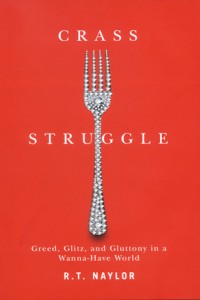-

Our Dying Planet
By the end of this century, coral reef ecosystems will very likely be extinct. Think about the magnitude of that statement for a minute, requests ecologist and coral reef expert Peter F. Sale in Our Dying Planet.
-

Get rid of the car
Stop Signs takes the myriad problems associated with a world obsessed with cars and wraps them up in a concise, compelling, and at times even funny, plea to quit the automobile.
-

The Forgotten Space
Directed by Allan Sekula and Noël Burch, The Forgotten Space, is a probing examination of modern-day transportation systems like container ships that make global trade possible—their impact on workers, the environment, and more subtly the quality of life for city-dwellers living under its influence. When the Communist Manifesto first appeared in 1848, most on the left would have agreed with its authors that the development described in these words was deeply revolutionary:
-

Alliances: Re/ Envisioning Indigenous non- Indigenous Relationships
From movement organizing to individual relationships, Lynne Davis’s new anthology, Alliances, explores the tensions and possibilities of coalitions between Indigenous and non-Indigenous peoples today.
-

Bookmarks
Book reviews for Home and Native Land: Unsettling Multiculturalism in Canada and Creating Wealth: Growing Local Economies With Local Currencies.
-

Globalized Palestine
Although this book is about Palestine, it is not exclusively so. It is also about the important lessons that we can learn from South Africa since 1994, when apartheid was transformed into a social category of control, oppression, and a system of exploitation by the people’s own indigenous self-proclaimed leadership. It is also about Latin America and about many other struggling peoples, in whom the current Palestinian struggle is embedded, and cannot be but embedded, thanks to the global process of colonisation and emerging re-colonisation.
-

Capitalism is Working Just Fine… That’s the Problem
Jameson makes a compelling case for why “Marx alone sought to combine a politics of revolt with the poetry of the future and applied himself to demonstrate that socialism was more modern than capitalism and more productive.”
-

Veblen’s Theory of the Leisure Class Updated
Crass Struggle is impressive for its comprehensiveness, a testament to the two-plus decades Naylor has spent researching and writing about international black markets. Since it is being released at a moment when, despite persistent revenue shortages, powerful forces in Canada and the US appear poised to block any efforts to raise taxes on millionaires, Crass Struggle’s depiction of the true nature of luxury consumption is also timely.
-

Lula: Son of Brazil
In a way the absence of politics goes hand in hand with the creative team’s understanding of Lula’s legacy. Ironically, despite their best (or worst) intentions, the end product is very much political since it depicts Lula very much as a careerist and an opportunist.
-

The Company Men
In many ways, I could not help but think of Arthur Miller’s “Death of a Salesman” when watching this film. Miller, a committed Marxist, understood the depths of the illusions that “company men” (salarymen in Japan) had in the system.



